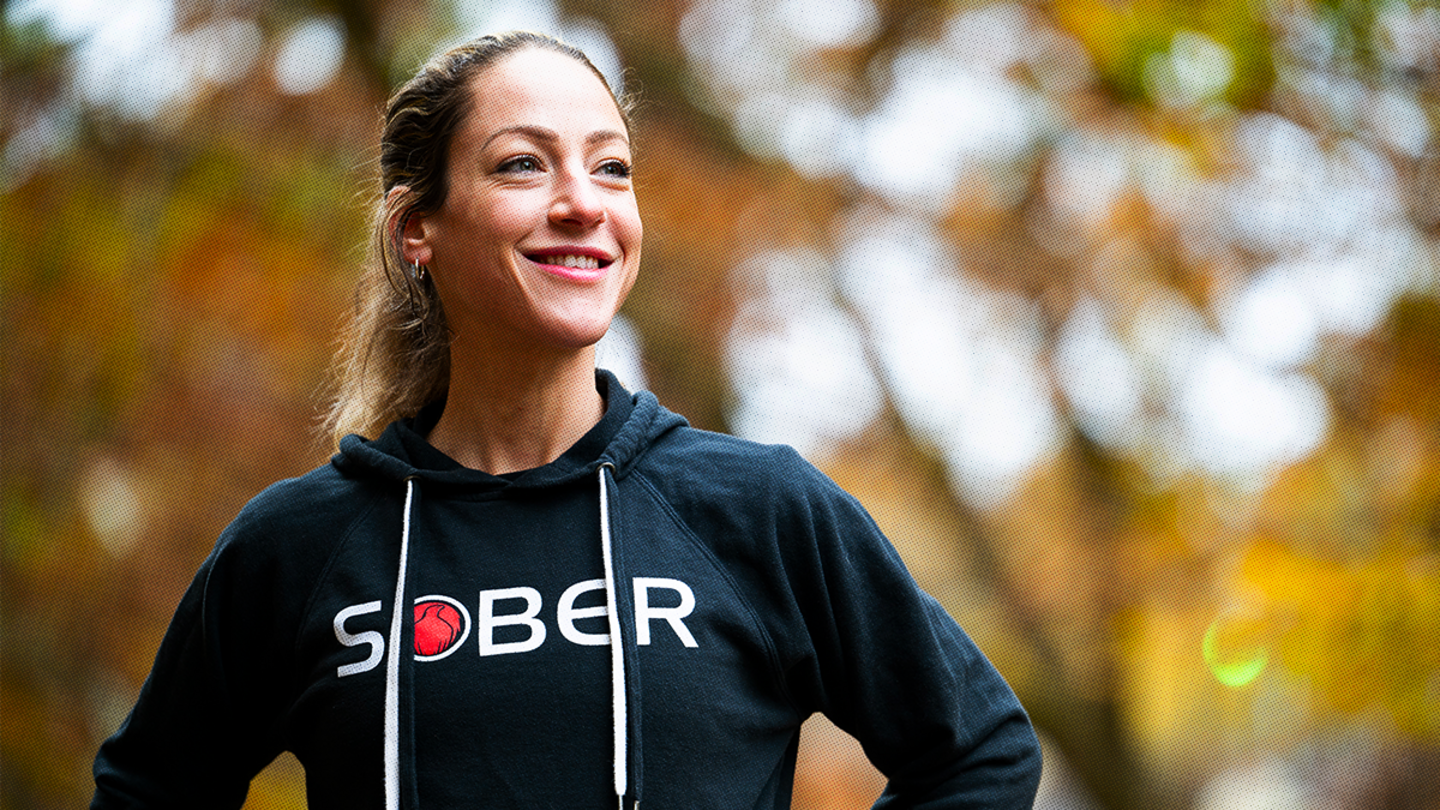On a Friday morning, 15 men and women logged on to Melissa De Stefano’s Full-Body Workout class from their homes in Colorado, North Carolina, and across the country to stretch, kick, and pump their way into a new day.
“Good morning!” De Stefano, 32, called out to one livestream participant by name. To another: “So good to have you back!”
At first glance, this could be any fitness class, except for the rest of her cheerful greeting: “It’s a great day to be clean and sober!”
De Stefano’s weekday workouts are among hundreds of free events hosted weekly online and in-person nationwide by The Phoenix, a sober active movement that bolsters recovery through the power of belonging. For many in De Stefano’s group, the morning workouts and other activities provide a vital community of support — building the resiliency to stay sober and helping them thrive.
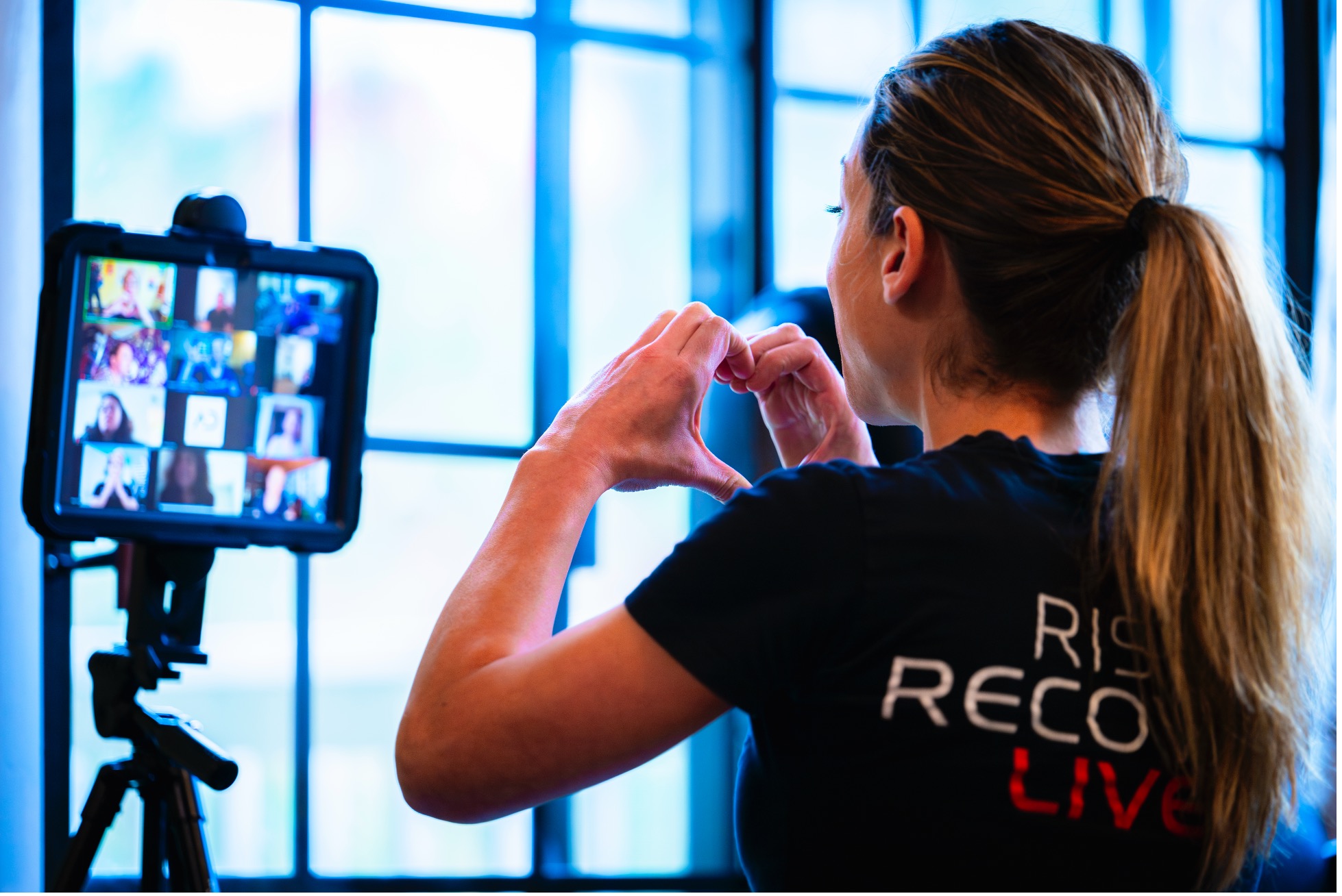
‘Where can I find sober people?’: De Stefano’s class fills a gap
Ellis Campbell Jr., who lives in rural Georgia, said he had trouble finding sober friends and would slip back into drinking when he eventually grew bored in support group meetings. Then, three years ago, he discovered The Phoenix after Googling, “Where can I find sober people?”
In addition to De Stefano’s workouts, Campbell attends online yoga classes and hosts a Saturday evening Virtual Happy Hour with trivia contests, charades, and other games.
Recently, while seeking other sober men to talk to, he logged into a virtual Phoenix group for sober dads. He told them he didn’t have children but said he still felt so welcome that he plans to join them weekly anyway.
“It’s a way for me to have friends that are sober,” said Campbell, 55. “I'm in a small town, and I have one sober friend in this town. So, The Phoenix is extremely important to me … It’s the community of the people — people that genuinely care about you.”
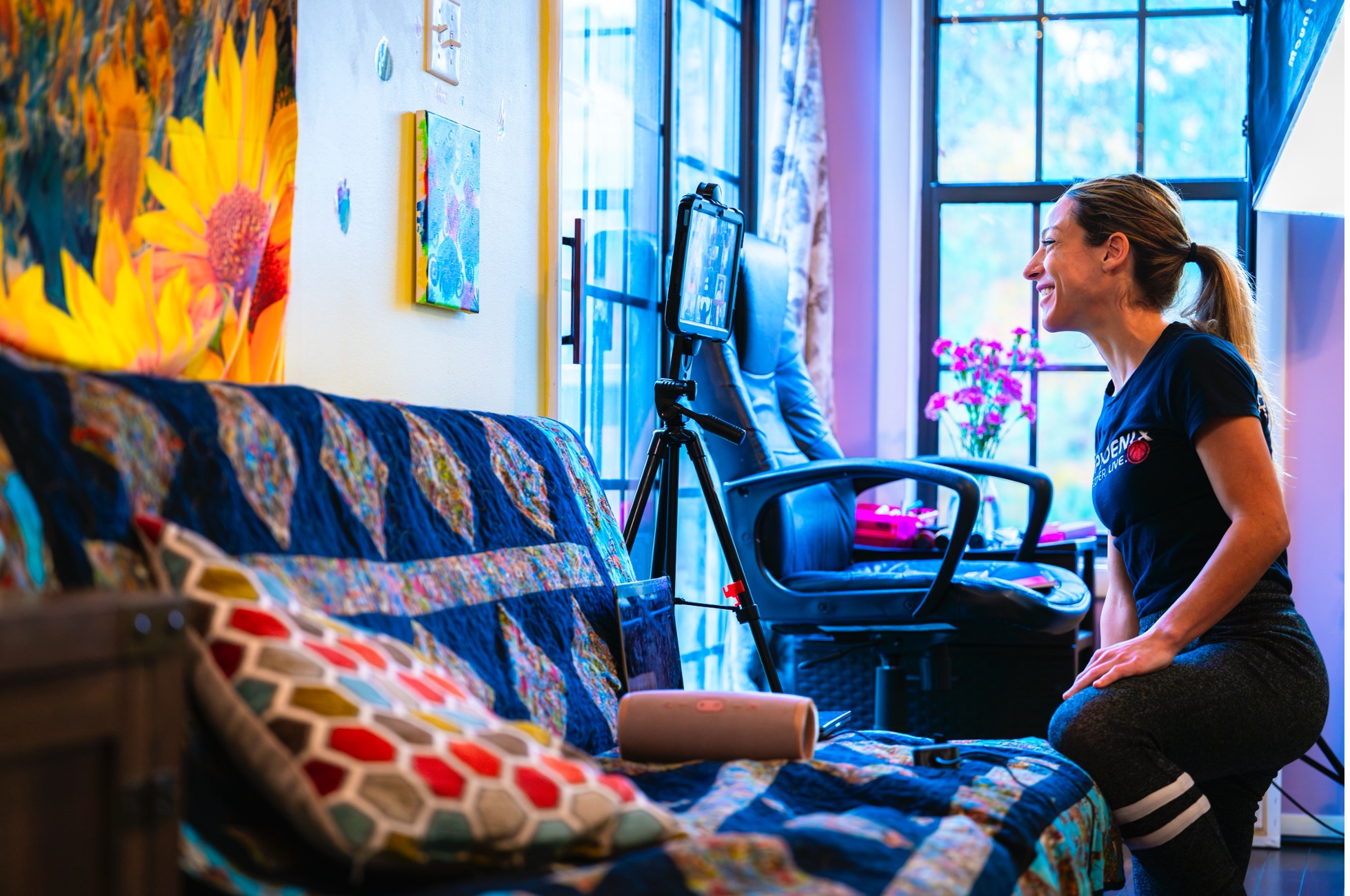
Krystal Wilson, 37, of Arizona, said she was initially drawn to The Phoenix in late 2021 because of its focus on health and wellness after she stopped drinking. She has stayed for the positive environment and sense of community she finds in De Stefano’s class and other activities, including a virtual book group she recently started with a friend she met in a Phoenix group for sober moms.
“The Phoenix truly has been such a huge part of me having a desire to live a sober life,” Wilson said. “Everyone is just so loving and supportive.”
Millions of Americans still struggle with addiction
As of mid-2024, The Phoenix has impacted 565,000 people through nearly 150,000 sober-social activities since Scott Strode, who has overcome his own drug and alcohol addiction, cofounded The Phoenix in 2006.
It’s truly addressing a need in America today: 48.5 million U.S. residents aged 12 and older — 17% of the population — deal with substance abuse, according to the federal government’s 2023 National Survey on Drug Use and Health.
Sign up for the Strong & Safe Communities newsletter for stories, ideas, and advice from changemakers working with their neighbors to address the biggest problems we face.
The Phoenix’s success illustrates how people closest to problems can best find solutions by bringing together their unique gifts and talents in ways that benefit each other.
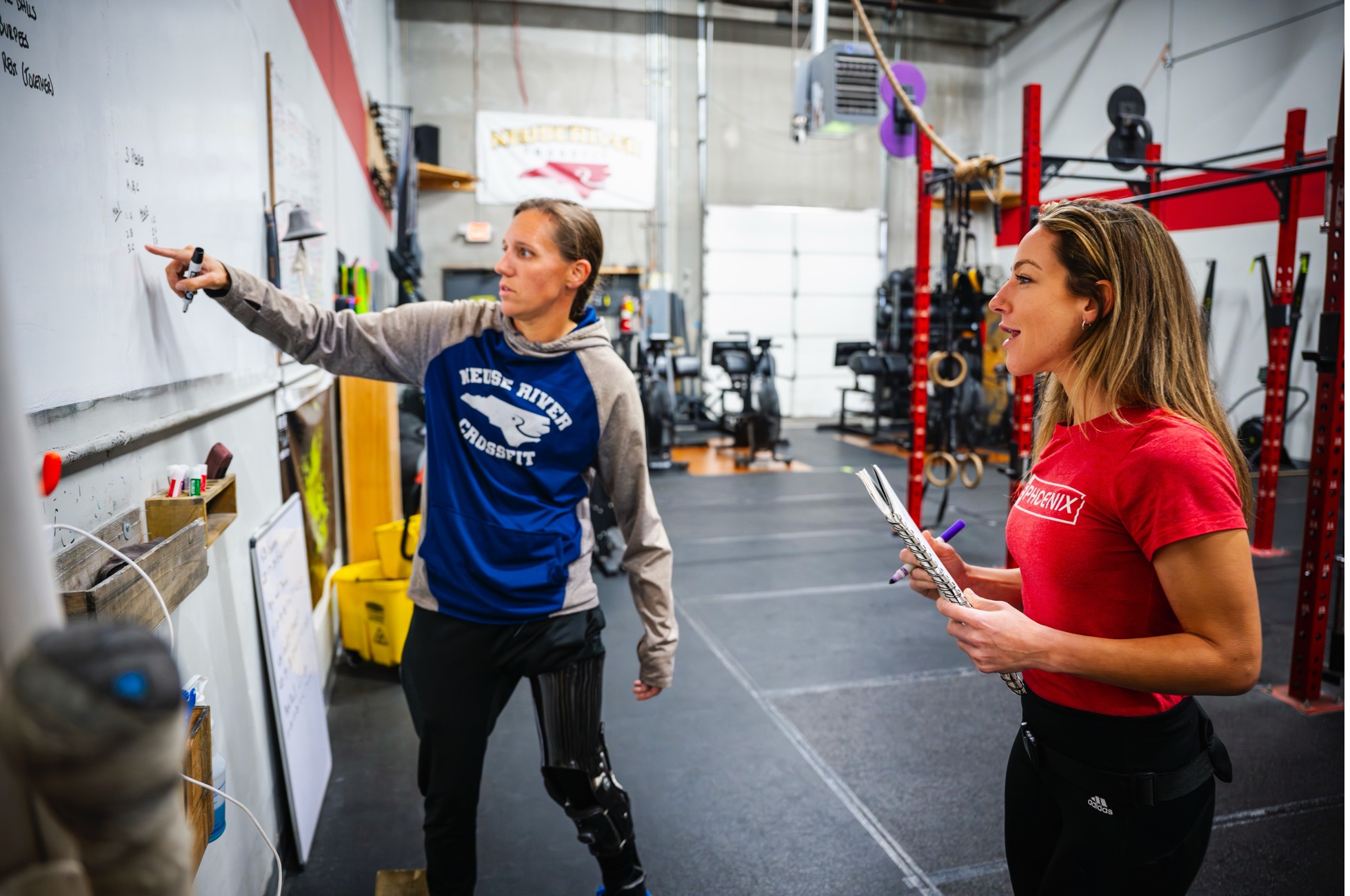
Events and activities extend far beyond exercise, including guided meditation, knitting and crocheting, a “Science For Curious People” gathering, gratitude practices, and support groups. In-person activities across the country vary from pickleball, bowling, and rock climbing to concerts, museum tours, and karaoke nights.
The Phoenix app and the rapid growth in online options since the pandemic have greatly expanded its reach, allowing people to participate regardless of where they live or their access to transportation. Online gatherings also can be scheduled around other commitments, such as work schedules and childcare needs.
The only price of admission: participants must be substance-free for at least 48 continuous hours. In addition to people in recovery, The Phoenix welcomes those who have chosen a sober lifestyle, as well as family members, supporters, and allies.
What it’s like working out in De Stefano’s class
De Stefano’s class is as much about connection as calisthenics, about sustaining mental and emotional health as much as building muscle. Like many other The Phoenix gatherings, the class includes “community time” for people to share what’s going on in their lives.
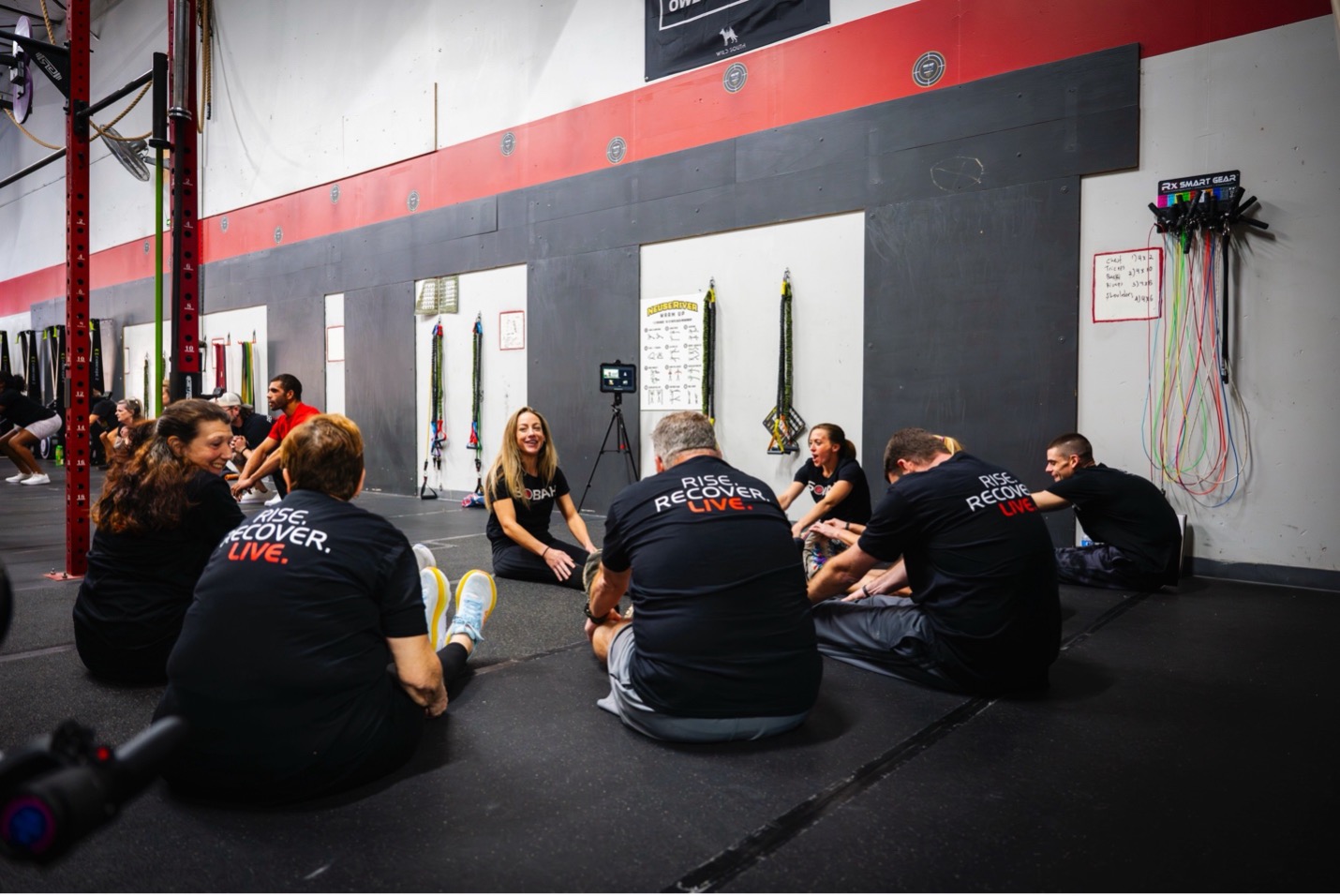
“We're not just there to burn a set number of calories or do a certain number of reps,” said Angela Todd, 51, who attends De Stefano’s class three to five days a week from her home in Colorado. “We're there for another purpose. The exercise is just a vehicle.”
Todd and others say they rely on the workouts for a morning mood boost. As De Stefano, whom some affectionately call “coach,” likes to say, “Motion fixes emotion.”
The daily class also provides a sense of structure and routine, of purpose and accomplishment. Participants say they feel both less alone and more accountable to others.
“It’s the foundation of my work days,” said Todd, who is six years sober. “I can't tell you how helpful it's been. I don't think I'd stay sober for myself, but I will do it because I don't want to ever have to call coach or tell everybody else in the group, ‘Hey guys, I'm back at day one.’”
Why does community help in addiction recovery?
Research shows The Phoenix’s community approach works.
Members’ levels of “flourishing” — a measure of fulfillment, joy and meaning, all known to reduce the likelihood of relapsing — increased by 16% in their first year with The Phoenix and continued to improve with time.
Participants who’ve been with The Phoenix almost 10 years enjoyed up to a 46% increase.
A 2024 study found that, after three months of participating in The Phoenix, 83% of members new to recovery said they remained sober.
Those findings track with numerous studies showing that forming positive social networks and participating in meaningful activities are associated with long-term sobriety, according to David Best, a research psychologist and professor of addiction recovery at Leeds Trinity University, who has written extensively on the subject.
That’s because sober-supportive communities increase feelings of connection, hope, identity, meaning, and empowerment — all critical to self-esteem and a sense of self-efficacy, Best said.
“What sustained people’s recovery was other people,” Best told a 2022 webinar audience.
Strode cofounded The Phoenix as a movement to help people in recovery bond over their goals rather than define themselves by their addictions, according to his memoir “Rise. Recover. Thrive.” to be published in January.
“It will be a group of people,” Strode wrote, “who support and believe in each other, even if we don’t yet believe in ourselves.”
'We give hope’ because ‘We’ve been there’
De Stefano, who is in recovery from heroin, said she knows what it’s like to start over. It’s why she wants people in her workouts to feel valued and cared for, both by her and others in the group.
“We give hope,” De Stefano said. “We've been there. We've walked through bad and hard and difficult situations.”
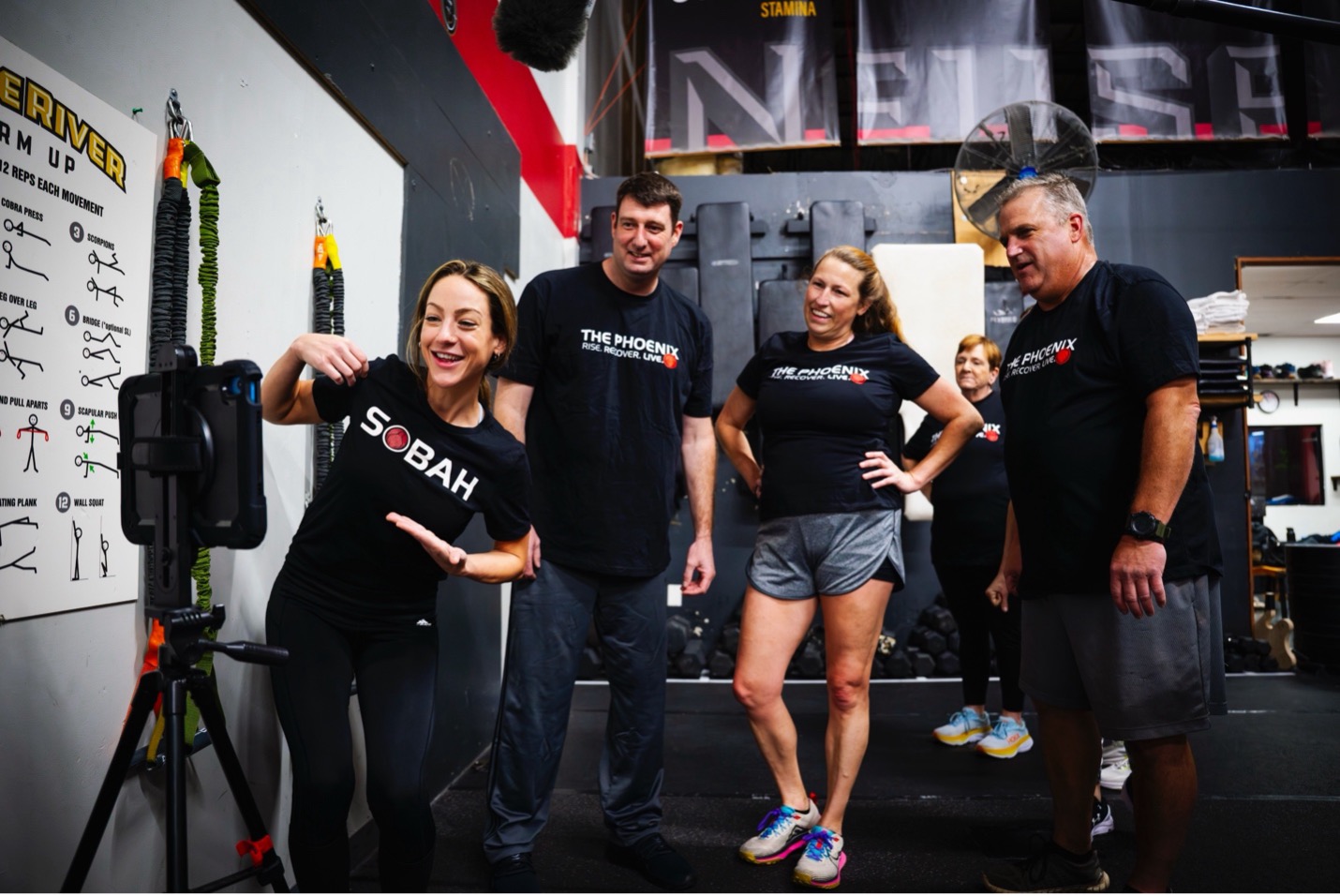
Todd, the Colorado woman who attends virtually, discovered De Stefano’s class in 2020, shortly after the COVID-19 pandemic started. When her recovery group meetings went online and her gym closed, she found it difficult to stay engaged with others and missed her workouts.
De Stefano’s class quickly became the community she longed for. She now texts some friends she’s met there almost daily, and one drove halfway across the country to meet Todd in person at her Colorado wedding.
On the tough days, Todd said, “I have a group of people whom I can reach out to, who will know what I'm going through, and who will help me not pick up [alcohol]… You meet other people who are on the struggle bus with you, and you ride along together.”
Wilson said she finds motivation in The Phoenix’s 48-hours-sober requirement.
“When you start allowing yourself to make connections with the people in The Phoenix, you start realizing that if I drink today, I won't see these people for two days,” Wilson said.
Wilson said she initially found that searching for a new, more sober-supportive social network left her feeling isolated, especially as a busy parent who also avoids bars and other places with drinking at the core. Now, she uses The Phoenix app every Sunday to fill her week with fun and connection, whether it be workouts, a gratitude group, or a dance fitness class with her 7-year-old daughter.
She’s even planning a reading-centric getaway with the fellow book lover she met in The Phoenix sober moms group.
“These are all lifelong friends that I will meet in person,” Wilson said of The Phoenix community. “It’s just a matter of when.”
In the meantime, De Stefano and The Phoenix will be there, ready to help her and others continue to thrive.
***
The Phoenix is supported by Stand Together Foundation, which empowers individuals to reach their full potential through community-driven change.
Learn more about Stand Together's efforts to build strong and safe communities and explore ways you can partner with us.

Veterans experience loss when leaving service. Could this be key to understanding their mental health?

The Grammy-nominated artist is highlighting the stories we don’t get to hear every day.
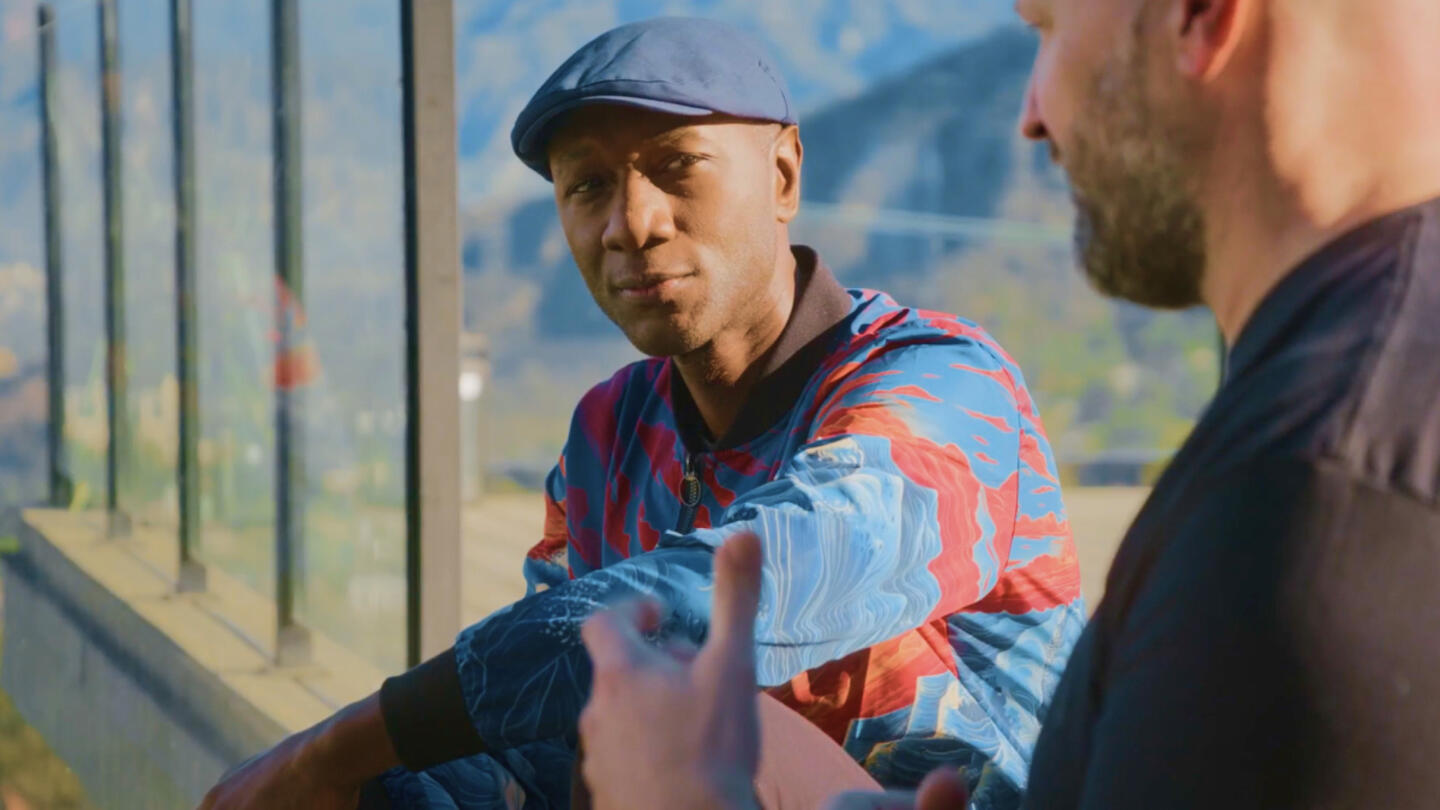
With his latest project, Blacc isn’t just amplifying stories — he’s stepping into them
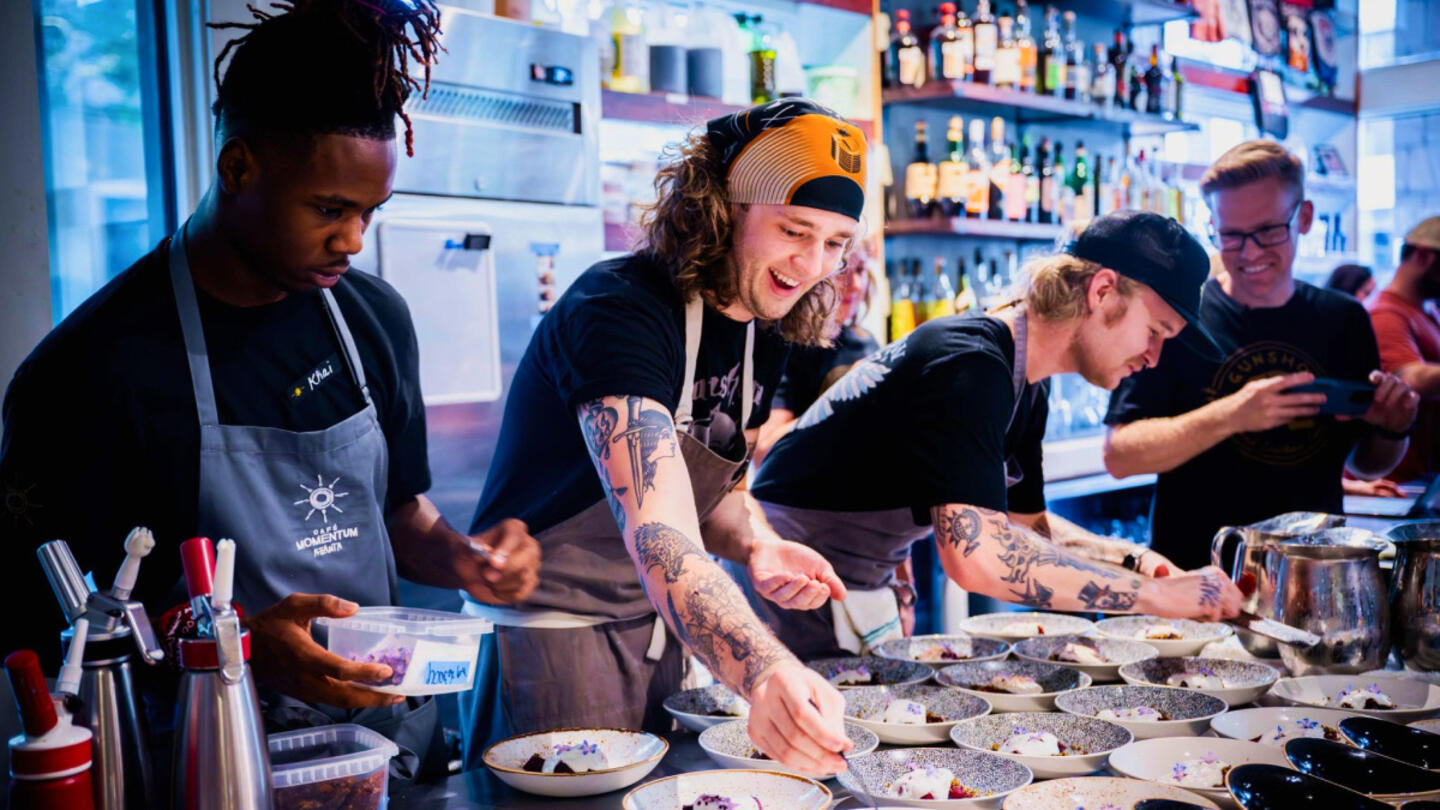
A new Atlanta restaurant offers opportunities for youth and powerful lessons for community leaders.
